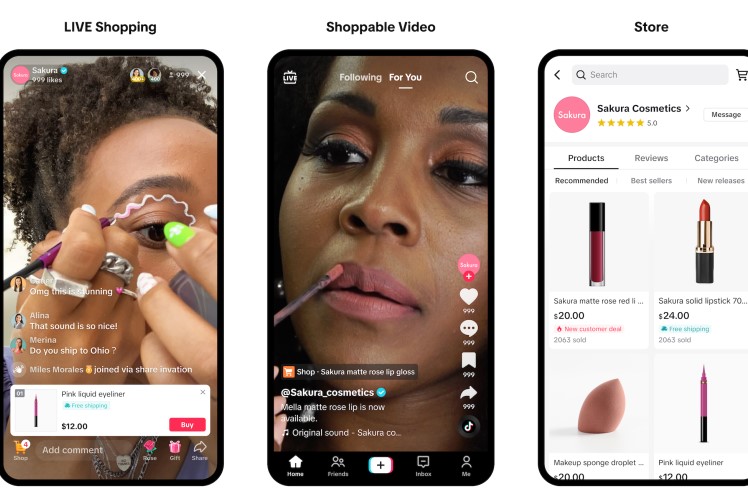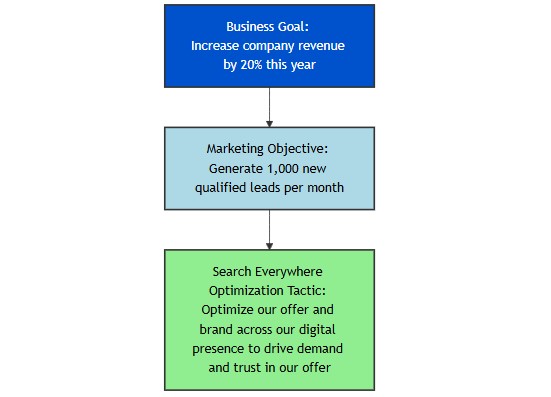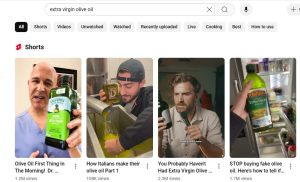SEO is the acronym for Search Engine Optimization. It is essentially the practice of influencing or being able to control some of the results that Search Engines show when someone types in or speak a query to the Search Engine’s system. This is standard practice for search sites like Bing, DuckDuck, Yahoo. But we are primarily focused on Google because Google has about 86% market share worldwide with a few exceptions. At least this was the initial definition of what SEO was!
The grandfather of all search engines was Archie, created in 1990 by Alan Emtage, a student at McGill University in Montreal.
SEO used to be about Google. You picked a few keywords, wrote some content, built some links, and—if you were lucky—ranked high enough to see some clicks. But that model is long gone. Search isn’t confined to search engines anymore. People search everywhere—on social, marketplaces, in chatbots, in videos, and yes, still on Google.
What we’re dealing with now is Search Everywhere Optimization, or SEO. This isn’t a buzzword—it’s a mindset shift. It’s recognizing that visibility in today’s world means showing up wherever your customers are asking questions, making decisions, and taking action. And that doesn’t happen just by targeting a few search terms.

So SEO is a complex tactic. It’s a way of controlling how Search Engines and the Internet in general interact and render one’s content. It’s not a business goal. No one forms a new company or sits down with their division and says, “Okay, we need to rank all these keywords”. Instead, A real business goal sounds more like:
- “We want to grow online sales.”
- “We need more qualified leads for our sales team.”
- “We want more people to know who we are and what we offer.”
We’re trying to build a bigger audience. In order to do that, we have marketing goals that we want to achieve, things like we want to build brand awareness, we want more people to know who we are, to become aware of our selling proposition because people who have heard of us are going to be more likely to buy from us. So that is a good marketing goal, and SEO can help us with that. You might want to grow the top of your conversion funnel, we want more people coming to the site overall so, that we can do a better job figuring out who is the right audience for us and converting some of those people, retargeting some of those people, capturing emails from some of those people, all those good things.

SEO, as a strategy is essentially a set of tactics, things that you will do in the SEO world to rank for different keywords in the search engine or control and influence what already ranks in there so that you can achieve your marketing goals so that you can achieve your business goals. Don’t get this backward. Don’t start from a place of SEO. Especially if you are an SEO specialist or a practitioner or you’re joining a consulting firm, you should always have an excellent idea of what these are and why the SEO tactics that you are undertaking fit into them. If you don’t, you should be asking those questions before you begin any SEO work. So SEO can don things like rank for low demand, things that don’t have a lot of searches per month but they are high conversión likely keywords, you could try and earn traffic from high demand, low competition keywords that are less focused directly on e-commerce, and you might be trying to do things like building content that attracts links and influencer engagement so that in the future you can rank for more competitive keywords.
How Search Everywhere Optimization Fits into the Buyer Journey
The path to purchase isn’t linear anymore. It’s fractured, messy, and driven by multiple touchpoints across platforms. Here’s how that journey typically looks today—and where your optimization efforts matter:
Awareness: The “Wait, What’s That?” Moment
People discover you before they even realize they’re searching.
- They scroll past your reel on Instagram.
- They ask ChatGPT for the best coffee grinder for beginners.
- They overhear a TikTok voiceover recommending your brand.
So, following the new SEO approach you can:
- Optimizing video captions, audio transcripts, and hashtags
- Feeding structured answers and FAQs into AI models
- Showing up in visual search and autocomplete prompts

The Research Phase
After a user has been influenced to make a decision during the time engaging multiple digital platforms, then the research begins in an attempt to validate the intent. This is where people actually start searching with intent:
- They Google product reviews.
- They ask Reddit what people think of your service.
- They go down a YouTube rabbit hole comparing alternatives.
Why SEO is important
Search Everywhere Optimization (SEO) empowers you and your business to achieve core objectives by effectively attracting the right searchers who are actively seeking your solutions across diverse platforms. It allows you to control your brand perception, ensuring a consistent and positive image across all search results and digital touchpoints. Furthermore, SEO is crucial for influencing discovery, nudging potential customers towards your offerings through optimized auto-suggest features, related searches, and the latest AI-driven answer formats. Ultimately, this comprehensive approach is designed to maximize conversion funnel growth, bringing a higher volume of qualified prospects to your digital properties, enabling more effective identification, nurturing, and conversion into loyal customers.
How do achieve this with SEO?
- Publishing comparison pages and authentic customer stories
- Securing visibility in top answers on forums and social threads
- Marking up your content with schema to be picked up by AI

Conversion: Decision Time
At this crucial stage, your potential customers are ready to make a choice, engage directly with your brand, or complete a purchase. All the little signals you’ve sent now need to pay off.
- They hit your landing page.
- They check your pricing and support documentation.
- They go to checkout—or bounce.
Virtual Sigma optimizes for seamless conversion and trust-building, ensuring every interaction moves them closer to becoming a client.
Post-Purchase (Loyalty & Advocacy)
The journey doesn’t end with a sale; it’s just the beginning of building lasting relationships and driving long-term revenue growth. Here, the user’s goal is to effectively utilize their new product or service, easily find support, provide feedback, and ultimately, become a loyal customer and a passionate advocate for your brand.

Should I hire an SEO professional, consultant, or agency?
While you might handle basic SEO yourself, the complexity and rapid evolution of the “Search Everywhere” landscape often require expert guidance. The wrong techniques can actually harm your online presence.
At Virtual Sigma, we are not just SEO specialists; we are SEO strategists. We’re always focused on your overarching business and marketing goals. We don’t just chase rankings; we drive tangible results – leads, sales, and sustainable growth.
Don’t let your business get lost in the noise of the fragmented digital world. SEO is a long-term investment. Unlike paid ads that stop when your budget runs out, a well-executed SEvO strategy builds enduring authority and traffic that pays dividends over time. Ready to ensure your business is found everywhere your customers are looking?
Digital Marketing
For a more technical understanding within the domain of consumer motivation and impulse buying theory in the context of internet users, readers can review the article Scroll, Stop, Shop: Decoding impulsive buying in social commerce published in the Journal of Business Research.



